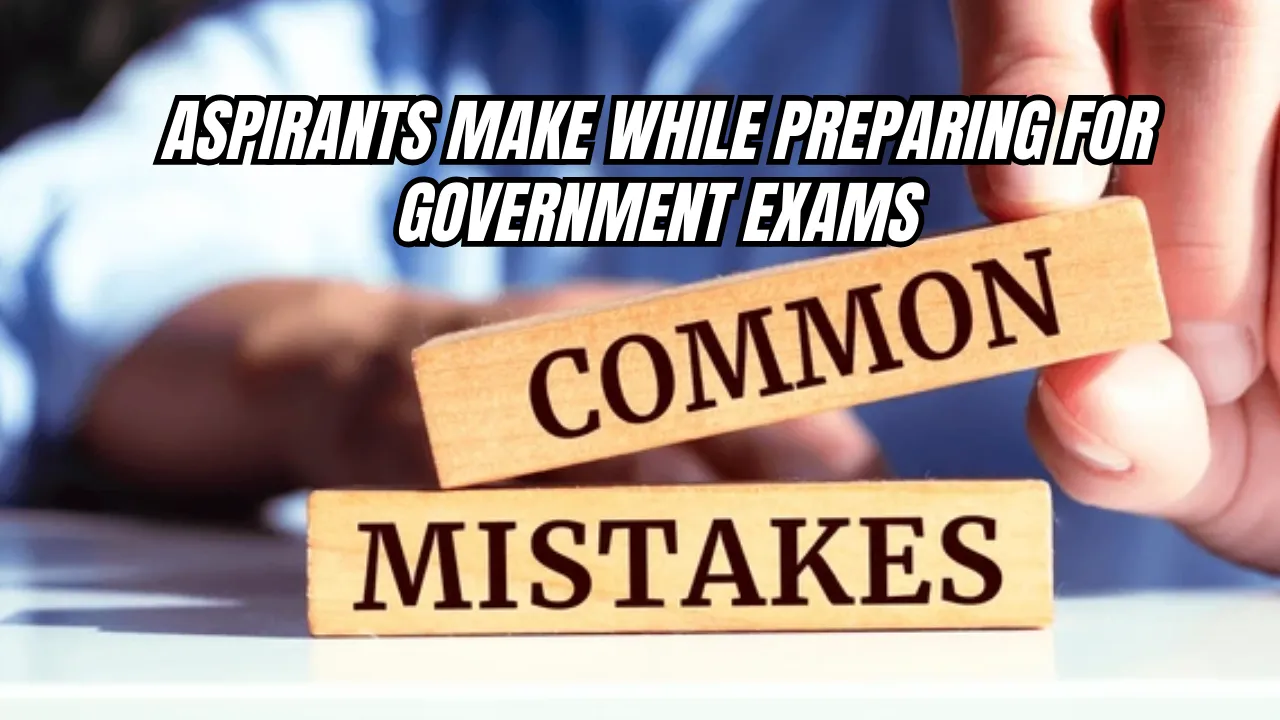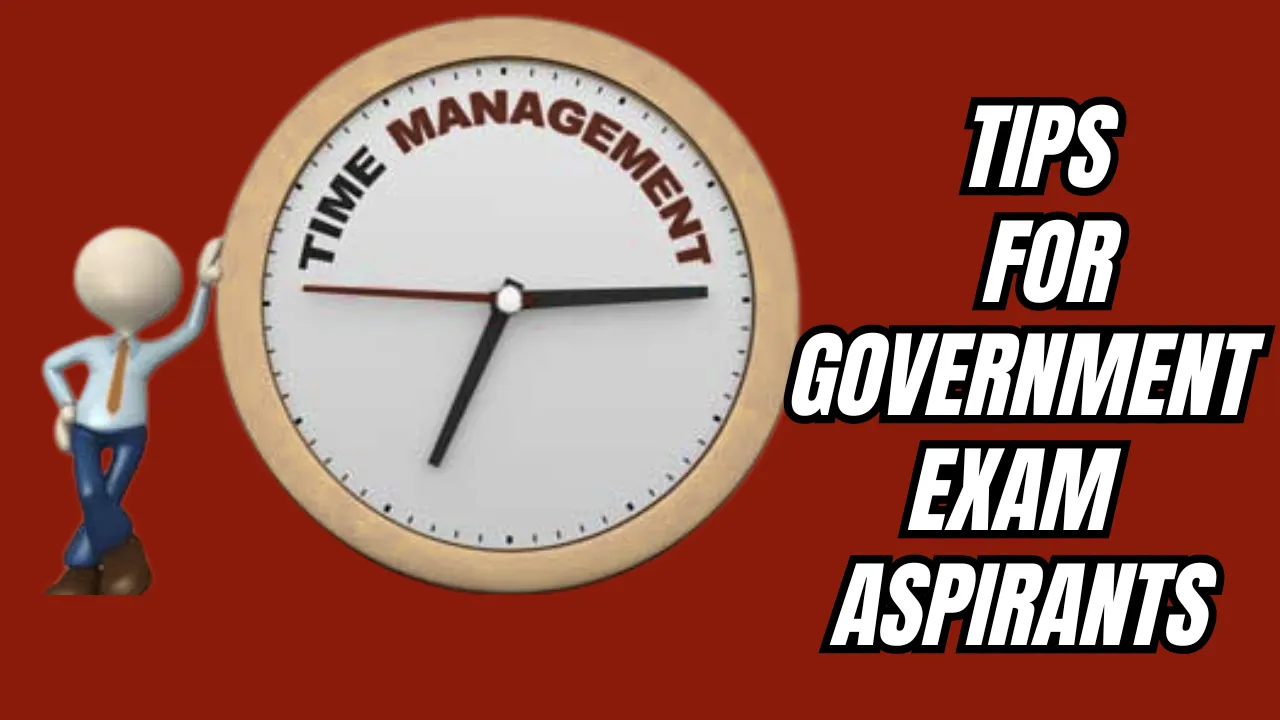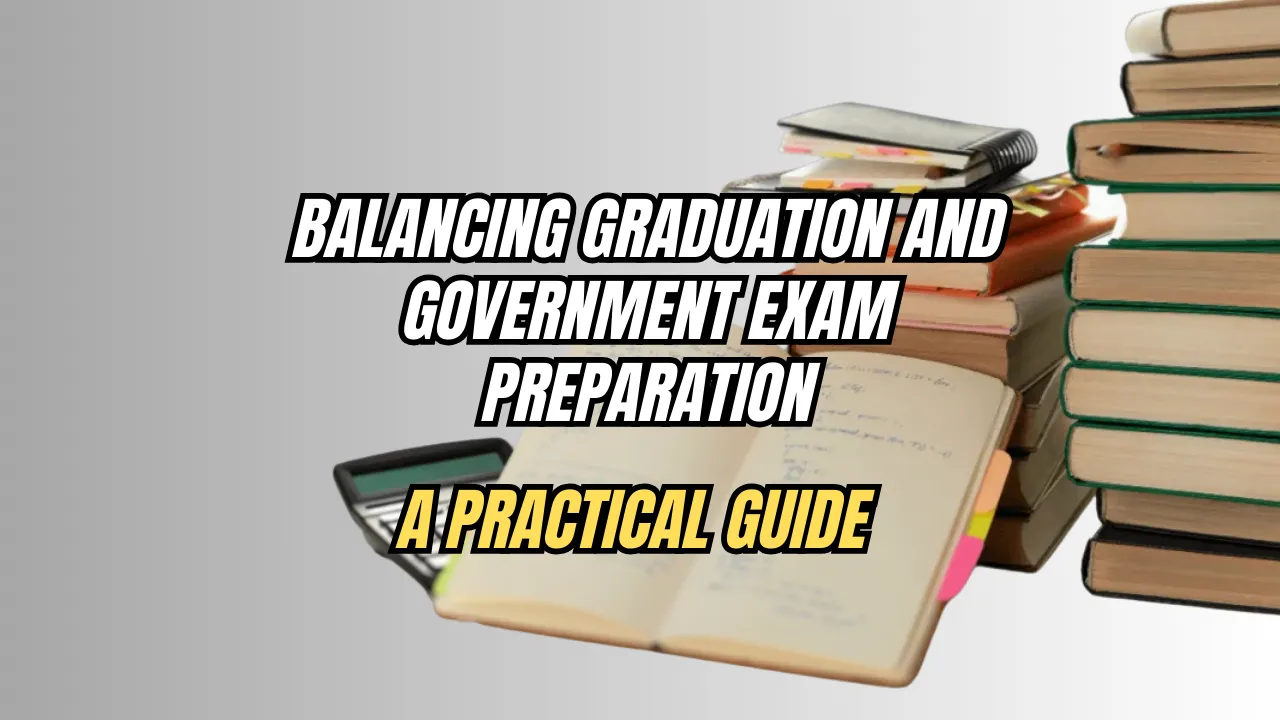Government exams are highly competitive and demand a systematic, focused, and consistent approach. While lakhs of candidates appear for these exams every year, only a small percentage manage to succeed. Often, it’s not just about hard work but about working smart and avoiding common mistakes that hamper progress.
Many aspirants unknowingly fall into certain traps during their preparation journey. Recognizing these mistakes early on and correcting them can significantly improve the chances of success. In this article, we will discuss the common mistakes in government exam preparation and how to avoid them.
Common Mistakes in Government Exam Preparation – Why Awareness Matters
Understanding the common mistakes in government exam preparation is crucial because these mistakes, if ignored, can lead to wasted efforts, loss of motivation, and unnecessary stress. Even the most hardworking aspirants may fail to clear exams simply because they followed the wrong strategy or neglected key aspects of preparation. By being mindful of these pitfalls and taking corrective action, aspirants can save time, study more efficiently, and enhance their performance.
Overview Table
| Common Mistake | Why It’s a Problem | Solution |
| Lack of Structured Study Plan | Leads to disorganized preparation | Create a realistic, subject-wise timetable |
| Ignoring the Syllabus | Results in wasting time on irrelevant topics | Stick to the official syllabus as your primary guide |
| Over-Reliance on Coaching | Neglects the importance of self-study | Balance coaching with independent learning |
| Neglecting Mock Tests & Practice | Poor exam-time performance | Regularly take mock tests and practice previous papers |
| Poor Time Management | Failing to complete exams on time | Practice managing time during mocks; plan time per section |
| Ignoring Current Affairs | Missing out on a high-scoring section | Stay updated daily with reliable sources |
| Lack of Revision | Forgetting previously learned material | Schedule regular revision sessions |
| Neglecting Health & Well-being | Reduces focus, energy, and productivity | Maintain sleep, nutrition, exercise routine |
| Overloading with Study Material | Leads to confusion and overwhelm | Stick to trusted, limited resources |
| Comparing Yourself to Others | Causes demotivation and stress | Focus on personal progress, avoid unnecessary comparison |
Lack of a Structured Study Plan
One of the most frequent mistakes is starting preparation without a proper timetable. Without a clear schedule, aspirants may find themselves spending too much time on one subject and neglecting others.
Solution:
Prepare a detailed and realistic study plan. Allocate time for each subject based on its weightage and your strengths and weaknesses. Set achievable daily and weekly goals and follow the plan consistently.
Ignoring the Syllabus
Many candidates study randomly without thoroughly understanding the syllabus. This leads to wasting precious time on irrelevant topics or missing out on crucial areas.
Solution:
Always begin by carefully reading the official syllabus. Keep it handy and cross-check regularly to ensure all prescribed topics are covered. Treat the syllabus as your preparation guide.
Over-Reliance on Coaching
While coaching can be helpful, depending solely on it without self-study is a big mistake. Many aspirants assume attending coaching classes alone is enough, neglecting personal effort.
Solution:
Use coaching as a supplementary aid. Devote equal or more time to self-study, revision, and practice. Focus on independent learning to reinforce concepts.
Neglecting Mock Tests and Practice
Some aspirants focus only on reading books and theory, avoiding mock tests. This can result in poor time management and lack of exam temperament.
Solution:
Take regular mock tests to simulate actual exam conditions. Practice previous years’ papers and analyze performance to identify weak areas. Practicing under time constraints will improve speed and accuracy.
Poor Time Management
Not managing time effectively, both during preparation and the actual exam, is a common issue. Spending too much time on a single subject or question can be costly.
Solution:
During preparation, allocate fixed hours per subject. In exams, divide total time section-wise. Practice solving papers within time limits to improve efficiency.
Ignoring Current Affairs
Many candidates underestimate the importance of current affairs, focusing only on static subjects. This often results in missing easy marks in exams like UPSC, SSC, and banking.
Solution:
Dedicate time daily to reading newspapers and reliable news sources. Make short notes of important events and revise regularly. Following government websites and monthly current affairs magazines can also help.
Lack of Revision
Studying new material without reinforcing previously learned concepts leads to forgetfulness and poor retention.
Solution:
Incorporate regular revision sessions into your study plan. Use summaries, mind maps, or flashcards for quick revisions. Weekly and monthly revisions are essential to keep concepts fresh.
Neglecting Health and Well-being
Some aspirants sacrifice sleep, proper nutrition, and physical activity for study time. However, neglecting health negatively impacts focus and productivity.
Solution:
Maintain a balanced routine. Ensure 7-8 hours of sleep, eat nutritious food, and include light exercise like walking or yoga. A healthy body supports a sharp mind.
Overloading with Study Material
Collecting too many books, notes, and resources can confuse aspirants rather than helping them. It often results in information overload and lack of clarity.
Solution:
Stick to a few reliable and recommended study materials. Focus on understanding concepts thoroughly rather than reading from multiple sources unnecessarily.
Comparing Yourself to Others
Comparing progress with friends or fellow aspirants can create self-doubt, stress, and demotivation.
Solution:
Remember that everyone’s learning speed and journey are different. Focus on your own improvement and trust the process. Avoid unnecessary comparisons and stay positive.
Final Thought
Awareness of the common mistakes in government exam preparation is the first step towards avoiding them. Success in government exams is not solely determined by how many hours you study but by how smartly you prepare, revise, and manage your resources and time. By steering clear of these common pitfalls and maintaining a balanced, focused approach, you can significantly enhance your chances of cracking the exam.
FAQs
1. How important is a study plan in government exam preparation?
A study plan is crucial. It ensures organized preparation, covering all subjects and topics within a set timeframe, reducing last-minute stress.
2. Are coaching classes necessary for government exams?
No. Coaching is helpful but not mandatory. Self-study, discipline, and regular practice play a more significant role in success.
3. How often should I take mock tests?
Ideally, you should take one full-length mock test weekly and increase frequency as the exam approaches.
4. How can I balance health and studies during preparation?
Maintain a routine that includes adequate sleep, healthy food, and light physical activity. A healthy lifestyle improves focus and energy levels.
5. What’s the best way to stay updated with current affairs?
Daily reading of reputed newspapers, following government websites, and using monthly current affairs compilations are effective strategies.











